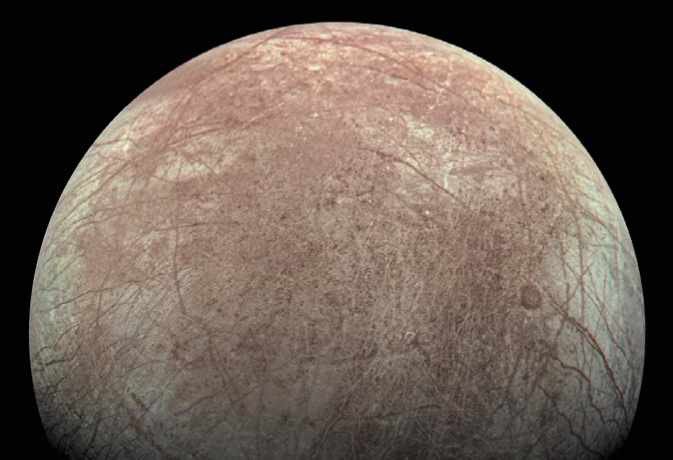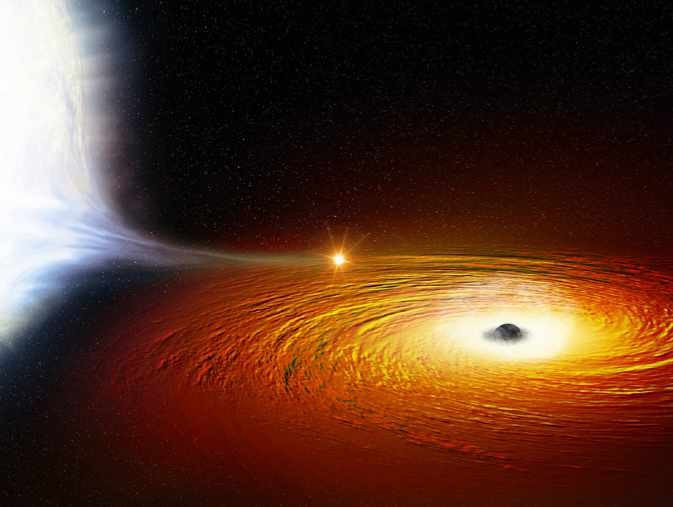
Ocean currents spin Europa
Currents in the ocean on Jupiter’s moon Europa could be pushing its free-floating icy shell, changing its rotation rate over time, according to a new set of computer simulations. The drag between the ocean and the icy shell could also be responsible for some of the cracks and ridges seen on the moon’s surface.
Leicester steps up for space
Space City Leicester has become one of the largest enterprise zones for space-related activities in the UK. The newly expanded cluster of facilities includes the National Space Centre and will be home to research, production, manufacture and development.
Brian May knighted
Queen guitarist Brian May received a knighthood from King Charles for his services to music and charity on 15 March. As well as his musical success, May has had a lifelong interest in space science, appearing on multiple episodes of The Sky at Night and Stargazing Live. In 2007 he completed his PhD on zodiacal dust bands, 37 years after he started.

Baby star near black hole
It shouldn’t exist, but recent observations have uncovered a baby star, X3a, orbiting close to Sagittarius A*, the black hole at the centre of our Galaxy. Intense radiation near Sgr A* should prevent stars forming, yet X3a is only a few tens of thousands of years old. Astronomers believe it formed in a dust cloud orbiting the black hole.
ExoMars in 2028
ESA’s Rosalind Franklin rover may still make it to Mars. Its ExoMars mission was originally meant to launch in 2022 on a Russian rocket but was put on hiatus following Russia’s invasion of Ukraine. ESA says it is now working with international partners to reshape the mission, with a target launch date of 2028.
Virgin Orbit halts work
Small-sat launch company Virgin Orbit was forced to suspend operations on 16 March following the failure of its launch attempt from Spaceport Cornwall in January. As of writing, the company was close to securing $200m from a venture capital investor which would allow it to resume operations.